The Last Confession of Thomas Hawkins - [26]
‘Mr Hawkins,’ Budge prompted.
There was no time to compose myself. Brushing the horse hair from my coat, I followed Mrs Howard through the door into a larger room.
Queen Caroline sat on a red damask sofa, knitting. Her pale, straight brows were drawn in concentration as she bent over her work. A heaped plate of candied fruit rested on a table at her elbow. Behind her lay two long sash windows, velvet curtains pulled back. They would offer a fine view of the park in the daytime. Now, the world outside was black and jewelled with stars.
The Queen of England. This was no dream, but still I could not quite believe my eyes. All the world knew that Queen Caroline of Ansbach was the great power in this family; everyone save her husband. Those famous, mocking lines played about my head. You may strut, dapper George, but ’twill all be in vain, We all know ’tis Queen Caroline, not you, that reign.
Mrs Howard glided behind her queen, the modest servant, attentive and silent. Budge stood sentinel by the fire. I glanced at him for instruction, but he gazed ahead, shoulders back. Mrs Howard gave a subtle gesture, bidding me to wait. I stood with one leg half behind the other, poised to bow.
The only sound was the fire crackling in the hearth and the knitting needles clicking back and forth. The queen twirled the wool with her thick fingers and said nothing. There was nothing to do but consider her, and doubtless that was her intent. Let the speechless fool gawp for a while until he regains his senses. Her dress was plain and somewhat sombre – a mantua gown in dark-blue silk matched with a black quilted petticoat. There was a prodigious dollop of black lace fixed atop her head, quite mysterious in its design and almost comical.
She had once been as fair as her husband’s mistress – fairer, in fact. A quarter-century ago every prince in Europe had wanted her hand. Fragments of her beauty still remained – her thick mane of greying blonde hair bouncing in ringlets down her shoulders, her butter cream complexion. The half-smile that played lazily on her pillow lips. But she had grown stout from childbirth and a sweet tooth. She seemed inflated somehow, swollen to twice the size of her rival, standing quietly behind her. No doubt that was why she wore a mantua, the bodice loose and unboned – not a fashionable style, but a good deal more comfortable.
‘Howard,’ the queen said without looking up. ‘Bring me the papers on this boy.’ Her voice was warm and rich, laced with a strong Bavarian accent. I felt the hairs on the back of my neck rise.
Mrs Howard crossed to a writing table piled high with books and correspondence. The queen paused in her knitting and began to count the stitches to herself in French, tapping her finger along the needle. The work was very neat. She gave a satisfied grunt and at last fixed me with a look, holding her knitting to her nose like a woollen veil. A deliberate, playful gesture that somehow merely confirmed her power. The world was hers to play in as she chose. She was chuckling to herself as I made my bow, but I could feel her eyes lashing over me like a whip.
‘Oh, mon dieu. Up! Up!’ she said, after I’d bent myself double for a long, back-breaking minute. As if she had not been the one keeping me there. Mrs Howard gave a curtsey and handed a sheaf of papers to her mistress. What a curious, uncomfortable situation for both women. I wondered why the queen allowed it.
‘Thomas Hawkins,’ the queen said, rolling my name around her mouth as if it were one of her sugared confections. She opened up a letter and read the first few lines – or pretended to. She folded the letter and dropped it on the sofa beside her. Settled back against a cushion. ‘Well, sir – I hear you fought a great battle in the park. Saved poor Howard from an unhappy reunion with her husband. He is a beast, of course – quite the worst man in England. Mrs Howard has not been as fortunate as I in her choice of husband.’ Her eyes gleamed. She had placed emphasis upon the word choice. Henrietta had chosen to marry Charles Howard.
The queen glanced at her servant, her husband’s mistress, her once-friend. ‘How long have you been married, Howard? I forget.’
I doubted that very much.
‘Two and twenty years, Your Majesty. I was sixteen years old.’ Mrs Howard’s voice was clear and perfectly composed. But there must be pain somewhere, buried deep. Twenty-two years, married to such a man! How had she survived him all this time?
‘Sixteen,’ the queen snuffed, as if that were quite old enough to know better. She skewered me with her gaze. ‘You are not married, sir.’
‘No, Your Majesty.’
‘No, Your Majesty,’ she mimicked, with surprising skill. ‘God forbid, Your Majesty. Why should I marry my red-haired trull when she opens her legs and her pocket for free
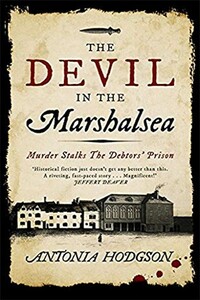
WINNER OF THE CWA HISTORICAL DAGGER AWARD 2014.Longlisted for the John Creasey Dagger Award for best debut crime novel of 2014.London, 1727 – and Tom Hawkins is about to fall from his heaven of card games, brothels, and coffeehouses to the hell of a debtors' prison. The Marshalsea is a savage world of its own, with simple rules: those with family or friends who can lend them a little money may survive in relative comfort. Those with none will starve in squalor and disease. And those who try to escape will suffer a gruesome fate at the hands of the gaol's rutheless governor and his cronies.The trouble is, Tom Hawkins has never been good at following rules – even simple ones.
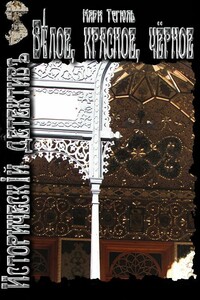
Третий роман из серии «Кавказский детектив, XIX век». Дом Мирза-Риза-хана был построен в 1892 году возле центрального парка Боржоми и очень органично вписался в городской пейзаж на фоне живописных гор. Его возвели по приказу персидского дипломата в качестве летней резиденции и назвали Фируза. Как и полагается старинному особняку, с этим местом связано множество трагических и таинственных легенд. Одна из них рассказывает про азербайджанского архитектора Юсуфа, который проектировал дом Мирза-Риза-хана.
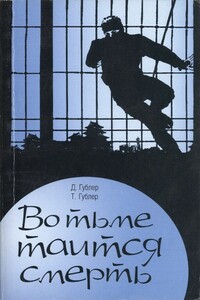
Богатый и влиятельный феодал господин Инаба убит ночью в своем доме в самом центре Эдо. Свидетелей нет, а рядом с телом обнаружено кровавое пятно в форме бабочки-оригами. Кому понадобилась смерть господина Инабы?.. Судья Оока, его пасынок Сёкей и самурай Татсуно отправляются по следам преступников. Но злодей, как это часто случается, оказывается совсем рядом.
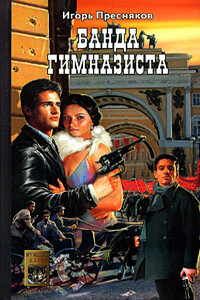
Зампреду ГПУ Черногорову нужен свой человек в правоохранительных органах. Как никто другой на эту роль подходит умный и смелый фронтовик, с которым высокопоставленный чекист будет повязан кровными узами.Так бывший белогвардейский офицер Нелидов, он же – бывший красный командир Рябинин, влюбленный в дочь Черногорова, оказывается в особой оперативной группе по розыску банды знаменитого Гимназиста. Налетчики орудуют все наглее, оставляя за собой кровавый след. Приступая к сыскной деятельности, Рябинин и не догадывается, какой сюрприз приготовила ему судьба.

Итак, снова здравствуйте. Позвольте представиться – Александр Арсаньев, ваш покорный слуга. И снова хочу представить на ваш суд очередной «шедевр» литературного творчества моей пра-, пра-, пра-… тетушки по отцовской линии – Екатерины Алексеевны Арсаньевой.На данный момент вышло уже четыре тома, в которых моя дорогая tante расследует различные преступления. Сейчас на ваш суд я представляю пятое произведение.
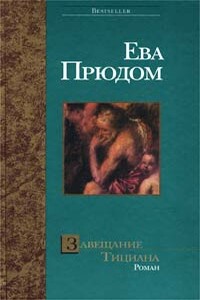
Перед вами — история «завещания» Тициана, сказанного перед смертью, что ключ к разгадке этого преступления скрыт в его картине.Но — в КАКОЙ?Так начинается тонкое и необычайное «расследование по картинам», одна из которых — далеко «не то, чем кажется»...

В книге В. Новодворского «Коронка в пиках до валета» рассказывается об известной исторической авантюре XIX века — продаже Аляски. Книга написана в жанре приключенческо-детективного романа.Аляска была продана США за 7200000 долларов. Так дешево?.. Да нет! — гораздо дешевле, если сосчитать, сколько человеческих жизней, сколько сил стоила она России! А, пожалуй, и не так дешево, если принять в расчет, сколько кроме этих 7200000 долларов рассовало американское правительство по карманам разных «влиятельных» особ, стоявших на разных ступенях царского трона.